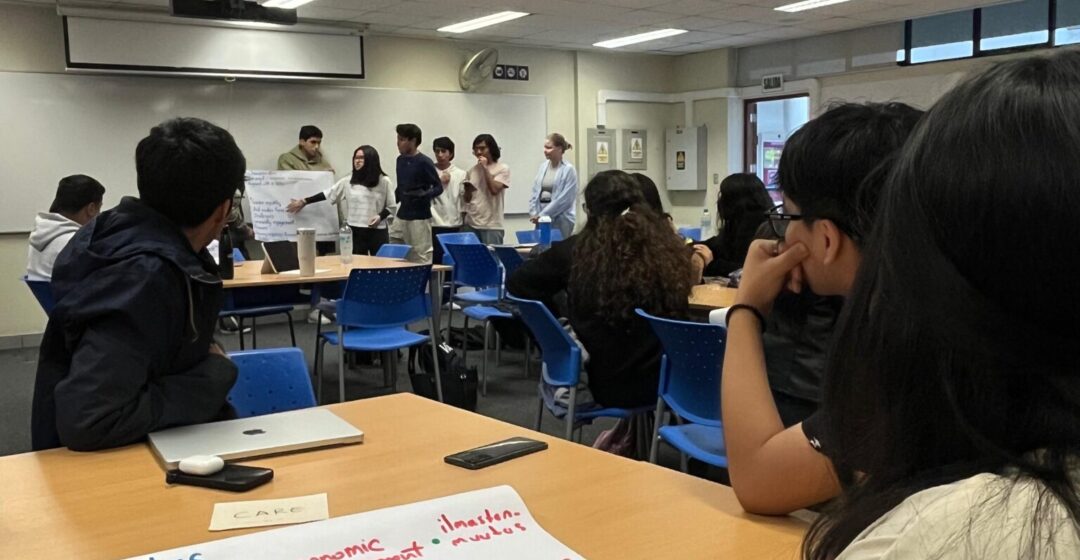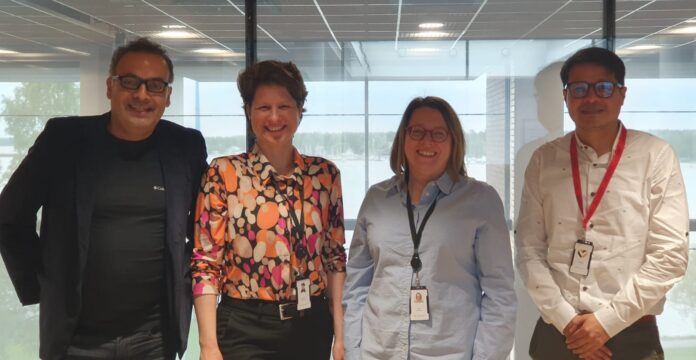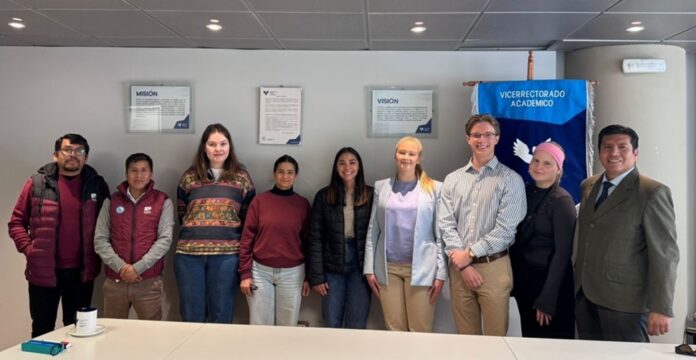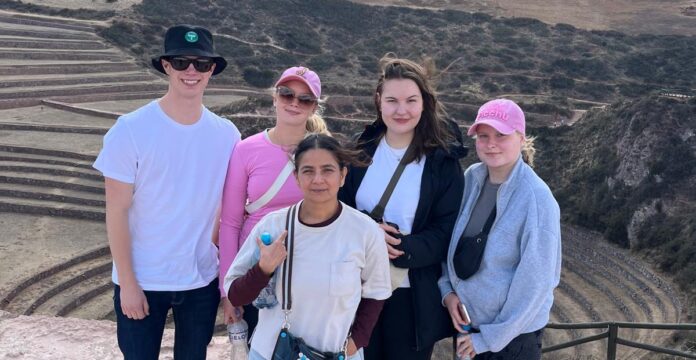Written by Mimmi Eskelä, Student at the University of Vaasa, Finland, who visited the PUCP, Peru, autumn 2024 for a short study abroad trip funded by the TFK2023
Our 12-day trip to Peru was an intense experience full of learning, exploration, and meaningful encounters. We immersed ourselves in Peruvian culture from various perspectives—local life, tourism, business, and academic insights. Lima and Cusco were vastly different places. Lima is rich in culture, bustling with activity, filled with restaurants, and a melting pot of cultures, with a less touristy atmosphere. In contrast, Cusco was calmer, surrounded by majestic mountains, and home to world-class attractions.
At Universidad Andina del Cusco, we attended a lecture on Peruvian agriculture and sustainability innovations. We learned that many sustainable practices stemming from a time before the Incas are still relevant today. Sustainable farming is vital for Peru’s exports, as agricultural products play a significant role in the economy. Sustainability ensures that farming land remains fertile and productive for future generations. We also drew parallels with Finnish agriculture, particularly regarding nutrient management and challenges like the eutrophication of the Baltic Sea. Organic farming was emphasized as a priority in Peru.
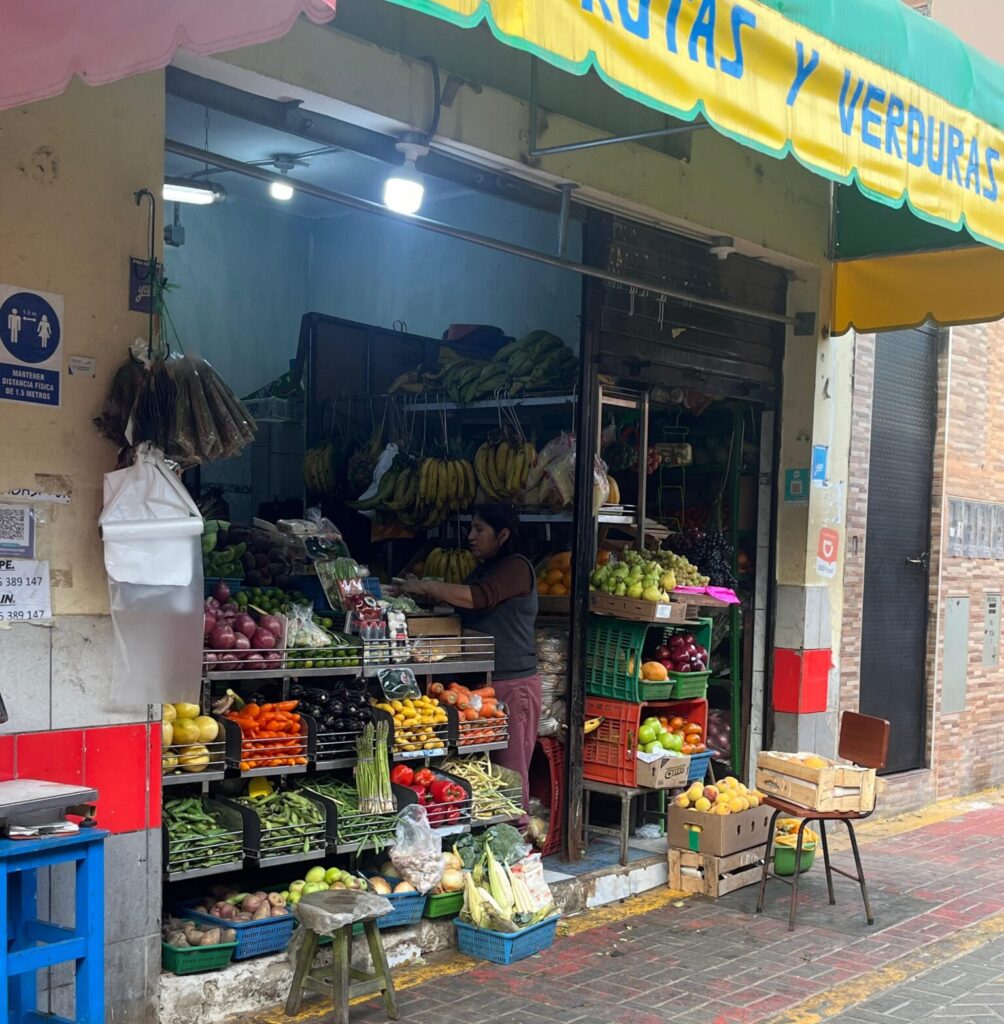
During our visit to Chinchero, we had the opportunity to observe an artisan workshop where high-quality handmade items were crafted using traditional methods. This experience highlighted the value of preserving local craftsmanship as part of sustainable international business. While in Cusco, we noticed many mass-produced goods intended for tourists, some possibly made outside Peru. In Aguas Calientes, we tried to gain vendors’ trust to learn more about their products’ origins, but the language barrier proved challenging. This highlighted the importance of speaking Spanish when conducting business in Peru.
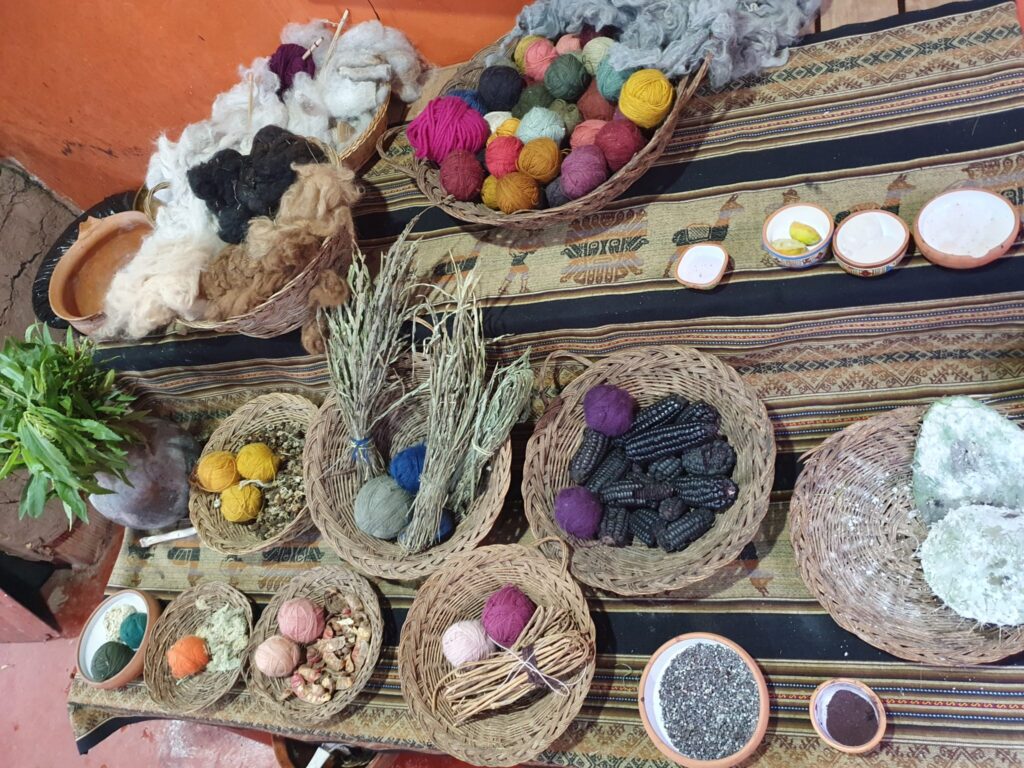
At the Finnish Embassy in Lima, we met Nicholás Vassallo from Business Finland. He explained that mining is Peru’s most significant industry and noted the strong presence of Finnish companies like Nokia and Metso in Peru’s mining sector. We also discussed the impact of corruption on working in Peru. Business Finland does not tolerate corruption and ensures their supported companies avoid dealings with corrupt practices. Corruption is, however, a major challenge in Peru, deeply embedded in everyday life and business. Vassallo emphasized that Peru, like Finland, operates as a trust-based society, where mutual trust is essential for business relationships.
We had discussions with a professor about the mining industry and its dual nature. While mining provides livelihoods for many, it also causes environmental harm and involves corruption. Political instability is another challenge. Many of Peru’s former presidents have faced prison sentences for corruption. Even the current president is suspected of corrupt practices. Nevertheless, Peru’s justice system holds corrupt politicians accountable. In Lima, we observed that the beautiful main square was fenced off to prevent protests against politicians. In Peru, there is also a hierarchy that is linked to racism, colorism, and the legacy of Spanish colonization. However, we also learned that the Incas had a highly structured hierarchical society, which has also influenced these patterns.
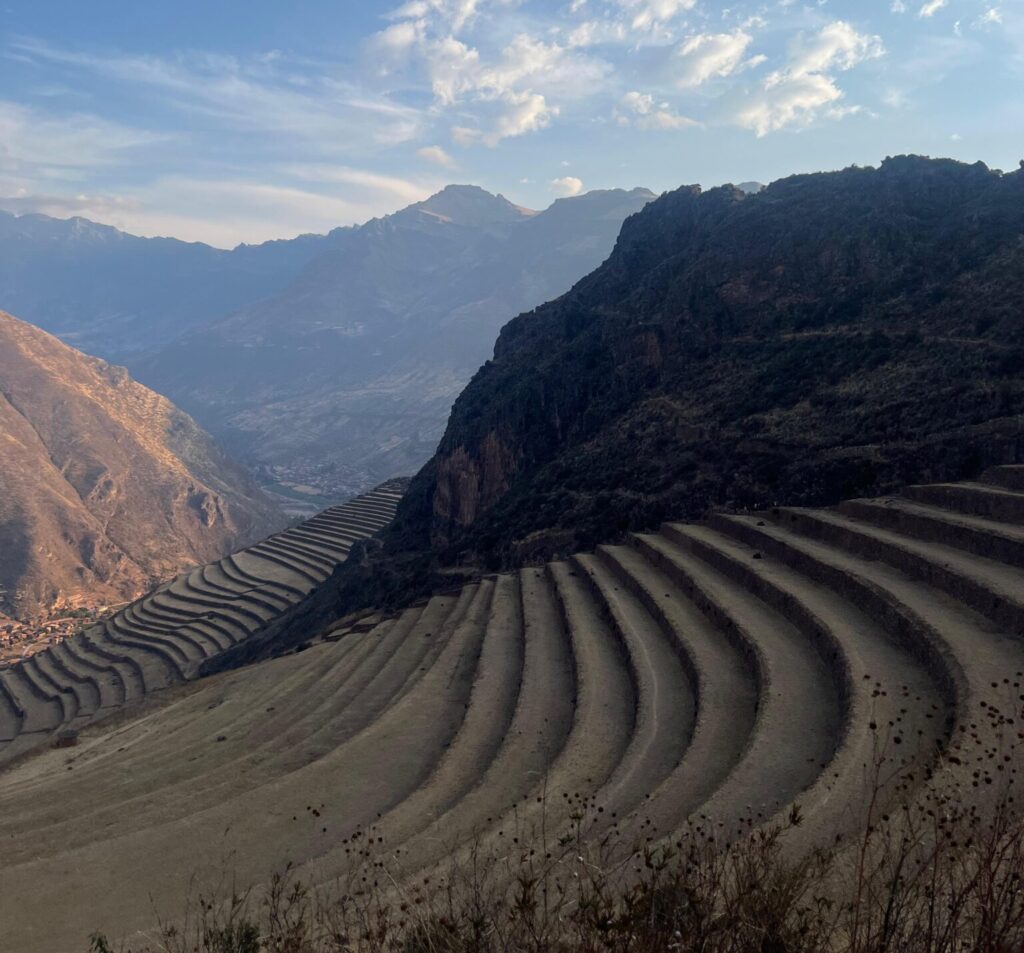
The lectures at Pontificia Universidad Católica del Perú (PUCP) were noticeably more interactive than in Finland. Lecturers encouraged active participation and group discussions, often assigning group work during classes. This reflects Peru’s more communal culture compared to Finland’s individualistic. On our final day at PUCP, we joined a social management lecture where Finnish students were split into groups with Peruvian students. We had fascinating discussions about NGOs and presented our thoughts to the class. During a break, Peruvian students from my group brought me Peruvian snacks as a souvenirs, even though we had only just met. At that moment, I felt truly touched and overall very happy about how genuinely interested they were in my culture as well. Their hospitality was remarkable, and this is one reason I would highly recommend PUCP to Finnish students.
PUCP’s campus was modern and vibrant. Students often stayed late due to the long commutes, as public transportation is insufficient, and traffic can extend travel times significantly. This differs greatly from Vaasa, where distances are short, and public transportation is more effective. A sociology professor explained that “Peruvian time” often results from the unpredictability of traffic, making punctuality a challenge. This is one aspect that Finnish students and Finnish companies must take into consideration in Peru.
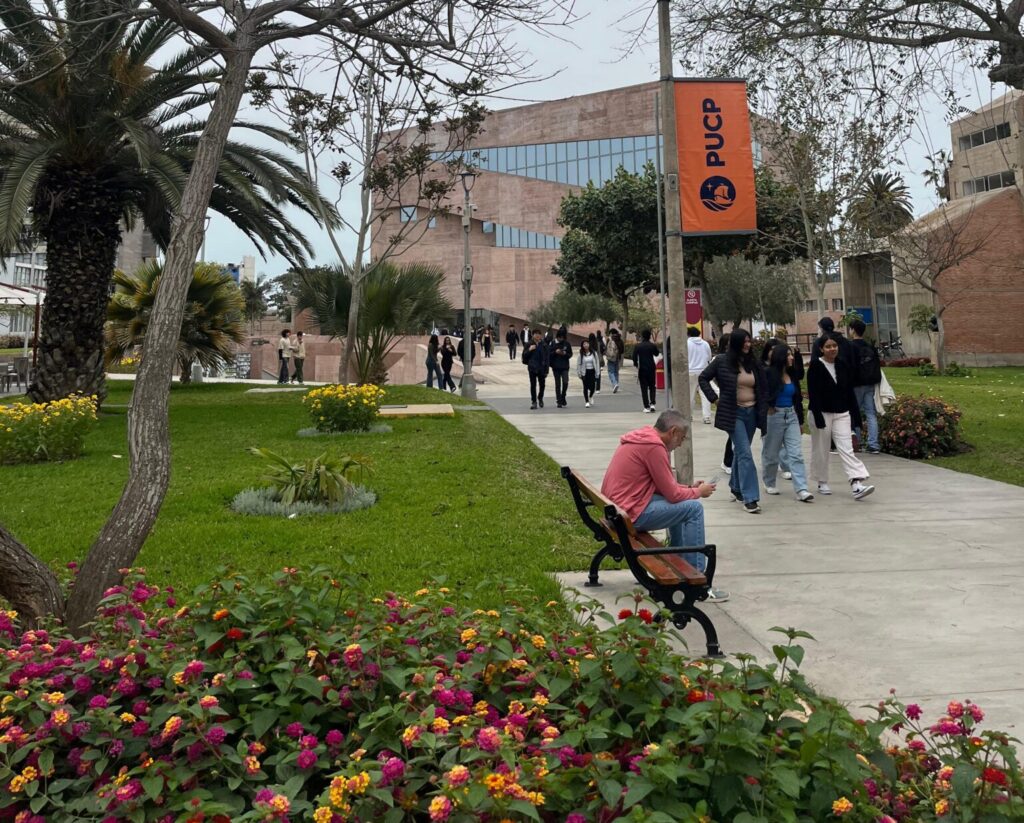
We visited Pamplona Alta, one of Lima’s poorest areas, hosted by Sanima Social Enterprise. Sanima provides dry waste management services to residents without proper sewage systems, but only 5% of the population in the area currently benefits from their services. Income inequality is striking compared to Finland. Seeing the inequality in different neighbourhoods strengthened my commitment to preserving the Finnish system of welfare.
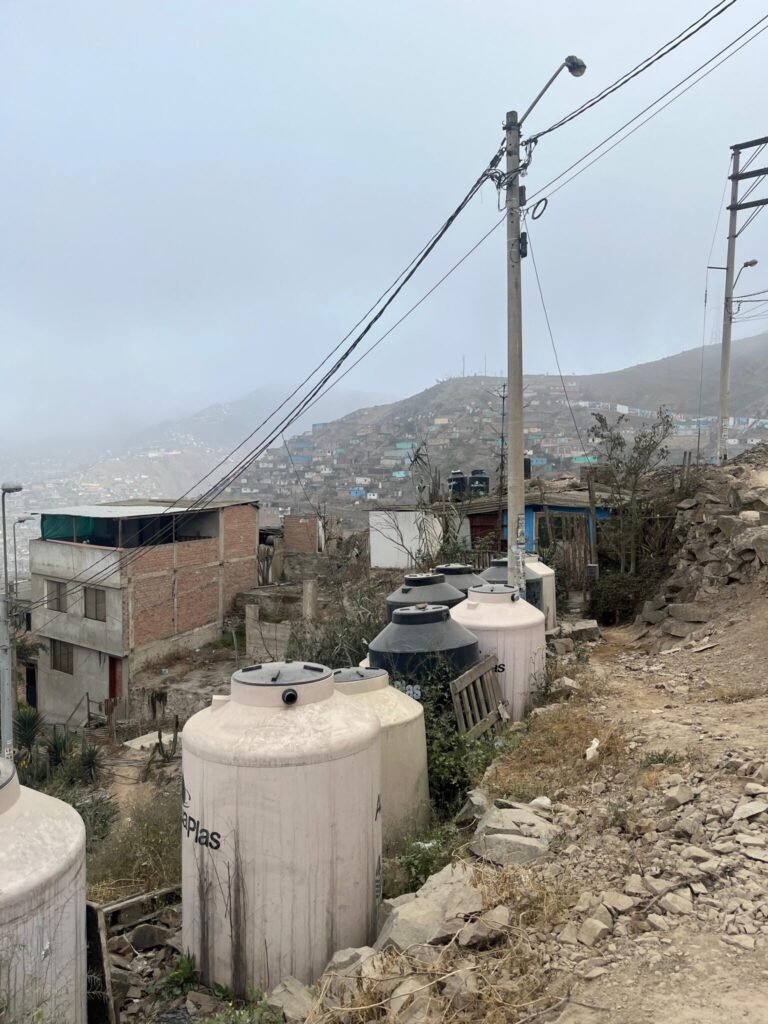
I will never forget this journey, which was filled with many memorable moments. The camaraderie within our group and the meaningful discussions about our experiences expanded my perspective, not only academically but also regarding my career aspirations. This trip gave me a deeper understanding of Peru, a country I will continue to follow both personally and professionally. It also reminded me of the importance of passion in work and life. I’d like to close with one unforgettable memory: the moment we opened our hotel room curtains in Aguas Calientes. The breathtaking view of lush, towering mountains and the sound of rushing water made up for it. The train ride through the region was equally unforgettable, as I had never seen such jungle-covered peaks before.
Acknowledgement
This visit was part of a collaborative project “Education for sustainable internationalisation of a firm (ESGinMNC)” uniting the PUCP and the University of Vaasa. The project was funded by by the Finnish National Agency of Education, TFK 2023. This project has been coordinated by Aušrinė Šilenskytė, Program manager and researcher at the University of Vaasa, Finland.
